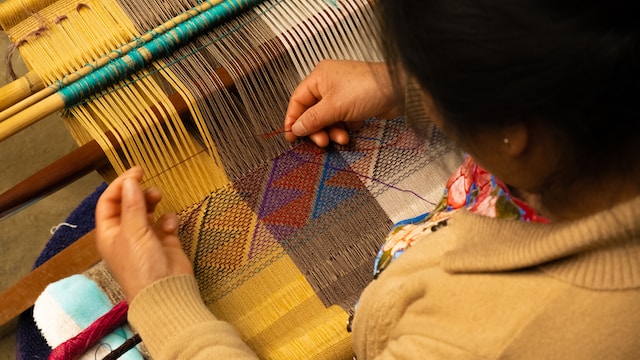If you find yourself navigating the intricate tapestry of cultural identity, values, and experiences, you might be contemplating the empowering journey of seeking cultural therapy. Choosing cultural therapy can be a profoundly affirming decision, as it provides a safe and supportive space to explore the intricate interplay of your cultural background, beliefs, and emotions.
This therapeutic approach recognizes that your cultural identity is an integral part of who you are and can deeply influence your well-being. It can assist you in addressing a wide range of challenges, from the complexities of acculturation and identity to the impacts of discrimination and cultural stressors. It can also help with other life challenges.
Browse our Therapist Directory
What Is Cultural Therapy?
Cultural therapy is an approach to therapy that places a strong emphasis on cultural factors, identity, and cultural background as integral components of a person’s psychological well-being. It recognizes that culture plays a significant role in shaping an individual’s beliefs, values, behaviors, and mental health. Cultural therapy is often practiced by therapists who are sensitive to and knowledgeable about various cultural backgrounds, traditions, and worldviews.
Key features of cultural therapy include:
- Cultural Competence: Cultural therapists are trained to be culturally competent, meaning they have the knowledge, skills, and awareness to effectively work with individuals from diverse cultural backgrounds. They respect and validate the unique cultural experiences and perspectives of their clients.
- Cultural Identity Exploration: Cultural therapy may involve helping clients explore and understand their cultural identities and how these identities intersect with their mental health. It encourages clients to reflect on their cultural heritage, experiences of discrimination, and cultural values that impact their well-being.
- Cultural Adaptations: Therapists may adapt therapeutic approaches and interventions to align with a client’s cultural preferences and needs. This may include integrating cultural rituals, storytelling, or traditional healing practices into the therapy process.
- Addressing Cultural Stressors: Cultural therapy may address stressors related to cultural identity, racism, discrimination, acculturation, or intergenerational trauma. It provides a safe space for clients to discuss and process these experiences.
Is Cultural Therapy Only For Addressing Issues Related to Culture?
Cultural therapy is not limited to addressing issues exclusively related to one’s cultural identity. While it is particularly beneficial for exploring and resolving challenges connected to culture, it can also be a valuable resource for addressing a wide range of life challenges and mental health concerns. Here’s why someone might seek cultural therapy for issues beyond cultural identity:
Holistic Understanding
Cultural therapy acknowledges that culture is an integral part of an individual’s identity but not the only factor influencing their experiences. By incorporating cultural perspectives, it can offer a more holistic understanding of a person’s life challenges, including those related to depression, relationship difficulties, parenting, women’s issues, anxiety, OCD, and more.
For example, someone coming to cultural therapy for issues related to depression might find help through:
- Cultural Identity Exploration: Cultural therapy can assist individuals in exploring the impact of their cultural identity on their experience of depression. It may involve examining cultural beliefs, stigma around mental health, and the role of cultural support systems in coping with depression.
- Cultural Coping Strategies: Therapists can help clients identify culturally rooted coping mechanisms that have been effective in managing depressive symptoms. This can empower clients to integrate these strategies into their treatment plan.
- Cultural Expression: Cultural therapy may encourage creative forms of cultural expression, such as storytelling, art, or rituals, as a means of processing emotions and addressing depressive thoughts.
Cultural Context
Many life challenges are experienced within a cultural context. Cultural therapy can help individuals navigate these challenges while considering how cultural beliefs, values, and expectations may impact their thoughts, emotions, and behaviors. For example, it can address how cultural norms may influence the experience of anxiety or the dynamics within relationships.
Cultural Sensitivity
In cases where cultural factors intersect with mental health issues, cultural therapy provides a culturally sensitive and competent approach to treatment. It ensures that clients feel understood and respected within the context of their cultural identities while working through various challenges.
Intersectionality
Cultural therapy recognizes the complexity of an individual’s identity, which often includes multiple intersecting aspects such as gender, race, ethnicity, and sexual orientation. It can be especially useful in addressing intersectional issues, such as women of color dealing with both gender and racial disparities in mental health care.
Empowerment
Seeking cultural therapy for a range of life challenges can be an empowering choice. It allows individuals to draw strength from their cultural backgrounds, explore how cultural factors may contribute to their experiences, and develop strategies for personal growth and well-being.
Cultural Coping Mechanisms
Cultural therapy may incorporate traditional healing practices or culturally specific coping mechanisms that can be beneficial in managing various challenges. These approaches can complement more conventional therapeutic techniques.
Cultural Therapy vs. Multicultural Counseling
Cultural therapy focuses on the exploration and integration of an individual’s cultural identity, beliefs, and experiences as central to the therapeutic process, with an emphasis on how these factors influence their mental health and well-being. It often employs culturally tailored interventions and practices to address a wide range of psychological challenges within a cultural context.
Multicultural counseling, on the other hand, is a broader framework that guides therapists in providing effective counseling to clients from diverse cultural backgrounds. While it acknowledges the importance of cultural competence and sensitivity, multicultural counseling does not necessarily make cultural factors the central focus of therapy and may draw from various therapeutic modalities to address the needs of a diverse clientele.
Is Cultural Therapy a Specific Type of Therapy?
Cultural therapy is not typically considered a specific modality of therapy in the same way that Cognitive Behavioral Therapy (CBT), Psychodynamic Therapy, or Dialectical Behavior Therapy (DBT) are. Instead, cultural therapy is an approach or framework that therapists may integrate into various therapeutic modalities to address cultural factors, identities, and experiences within the therapy process. Therapists can receive training in cultural therapy or cultural competence as part of their broader education and professional development.
Cultural Therapy in Combination with Other Therapy Types
Cultural therapy is highly adaptable and can work well in conjunction with various therapeutic approaches. It aims to integrate cultural factors, identities, and experiences into the therapy process, making it compatible with several therapy modalities. Here are some types of therapy that often work effectively alongside cultural therapy:
Humanistic Therapy
Humanistic approaches like Person-Centered Therapy and Gestalt Therapy emphasize the client’s unique experiences and self-actualization. When combined with cultural therapy, these modalities can help clients explore their cultural identities and values within a supportive and empathetic therapeutic relationship.
Narrative Therapy
Narrative Therapy focuses on the stories people tell about their lives. In combination with cultural therapy, it enables clients to reframe their narratives, incorporating cultural perspectives and empowering them to redefine their relationship with their cultural identities.
Existential Therapy
Existential Therapy delves into the client’s search for meaning and purpose in life. Cultural therapy can complement this approach by addressing how cultural beliefs and values influence an individual’s existential questions and search for meaning.
Shamanic Counseling
Shamanic counseling, rooted in indigenous practices, often incorporates cultural elements and spiritual aspects. Cultural therapy can enhance shamanic counseling by providing a framework to explore the cultural context of the client’s spiritual beliefs and practices.
Transpersonal Therapy
Transpersonal therapy explores the spiritual and transcendent aspects of the human experience. Cultural therapy can enrich this exploration by integrating cultural and spiritual dimensions into the therapeutic journey.
Integrative Therapy
Integrative therapists draw from various therapeutic modalities to tailor treatment to the client’s needs. Cultural therapy can be seamlessly integrated into this approach to address cultural factors and identities.
Family Systems Therapy
Cultural therapy can be applied within family systems therapy to examine how cultural dynamics and intergenerational influences impact family relationships and patterns.
Art Therapy
Art therapy encourages self-expression through creative means. In combination with cultural therapy, it allows clients to visually explore their cultural identities, beliefs, and experiences, making it particularly effective for clients who find it challenging to articulate their feelings verbally.
Mindfulness-Based Approaches
Mindfulness practices can complement cultural therapy by helping clients stay present and cultivate awareness of their cultural experiences without judgment. This can aid in managing stressors related to cultural identity.
Cognitive-Behavioral Therapy (CBT)
When combined with cultural therapy, CBT can help clients identify and challenge culturally rooted negative thought patterns and behaviors, fostering more adaptive coping strategies.
Next Steps
Incorporating cultural therapy into these and other therapeutic modalities enhances therapists’ abilities to provide culturally sensitive, relevant, and effective mental health care. It promotes a deeper understanding of clients’ unique cultural contexts and supports their emotional and psychological well-being within these contexts.
Are you ready to find a therapist who utilizes cultural therapy? Search our therapist directory today to find the one who is right for you. Or call us for more information.
Browse our Therapist Directory









